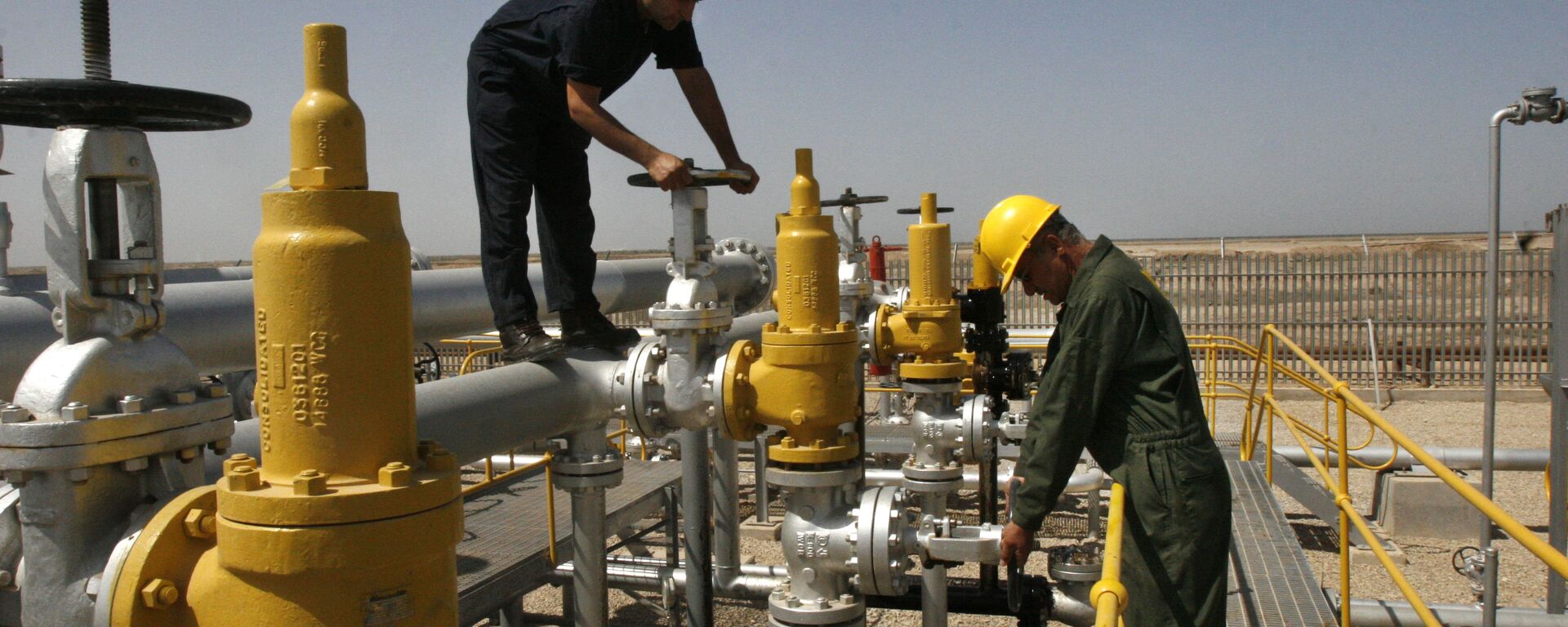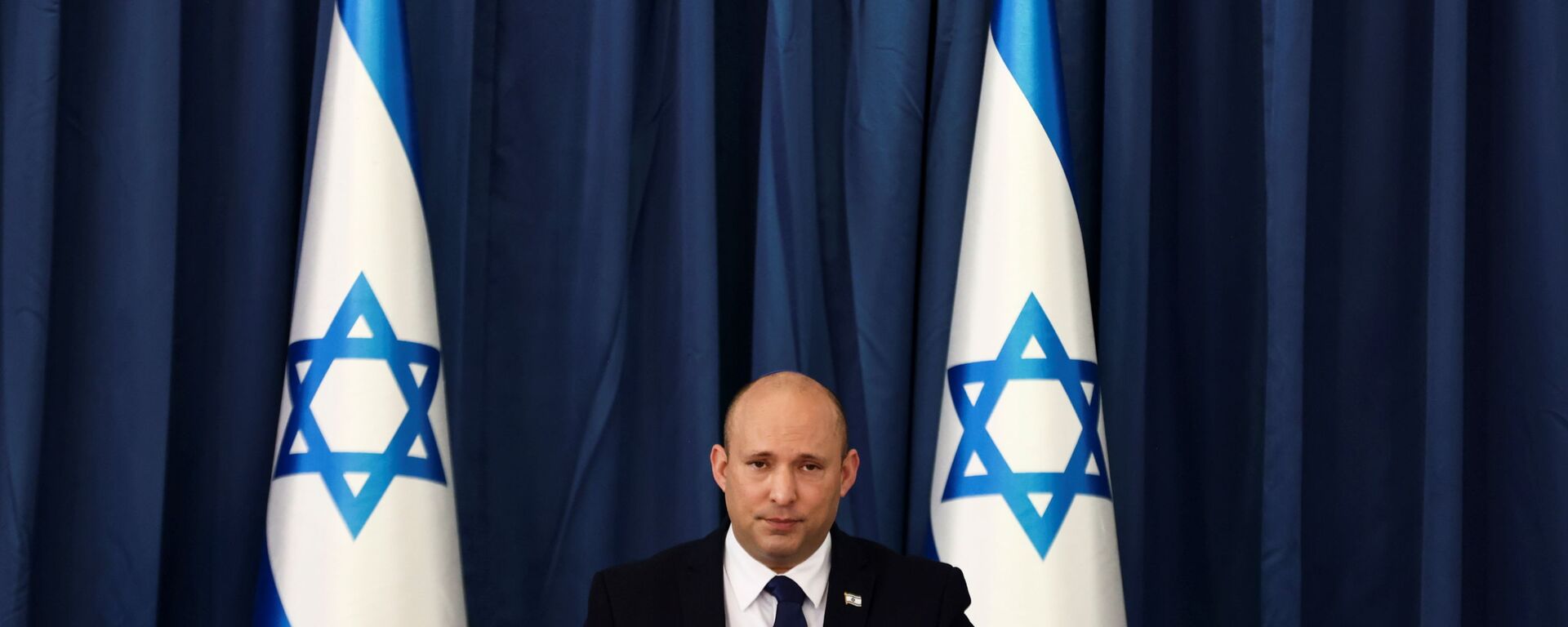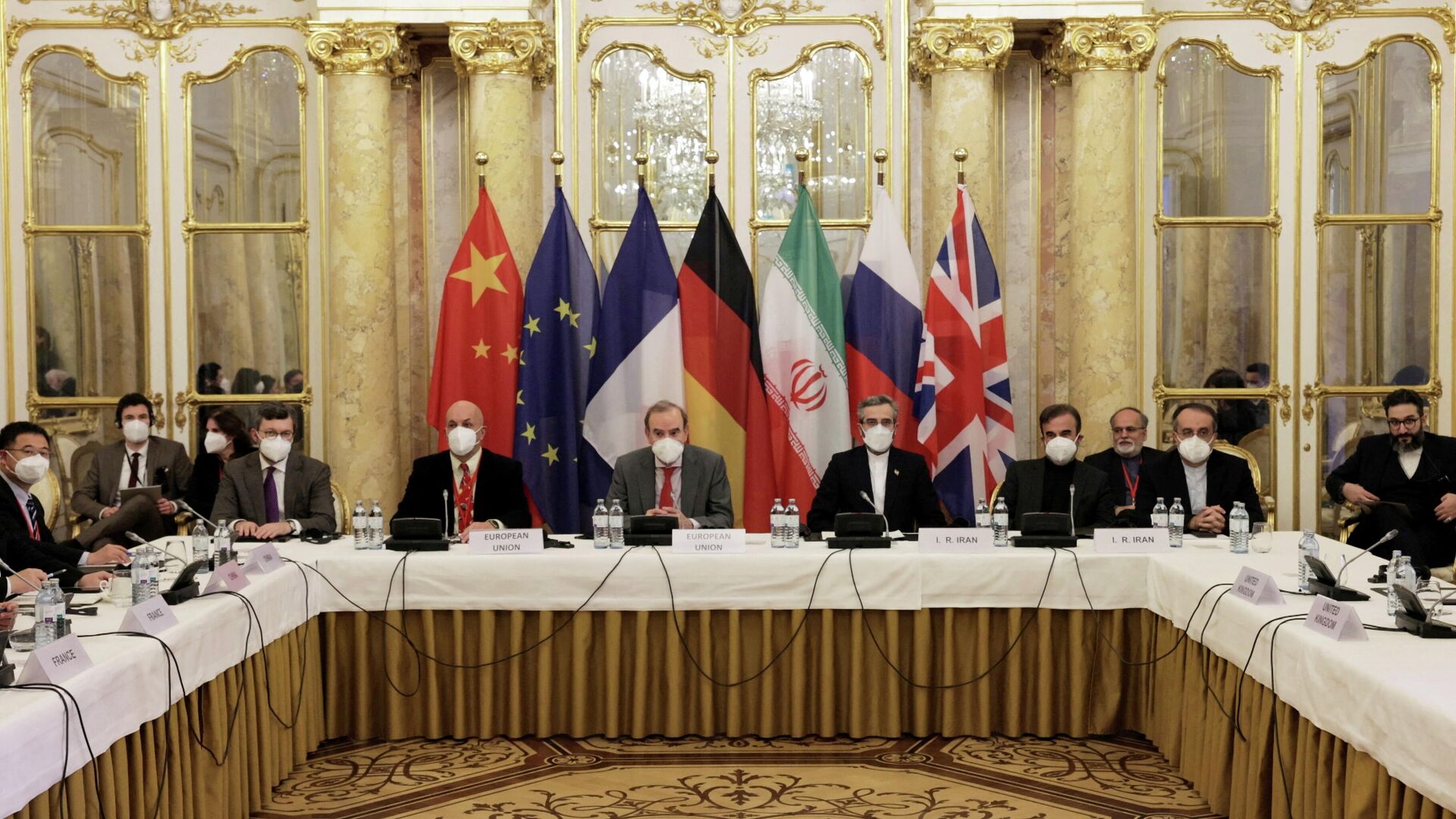https://sputnikglobe.com/20220117/plan-b-not-appealing-to-any-country-iran-slams-us-attempts-to-set-deadlines-on-vienna-talks-1092328967.html
Stop ‘Bullying Behavior’: Iran Slams US Attempts to Set Deadlines on Vienna Talks - Report
Stop ‘Bullying Behavior’: Iran Slams US Attempts to Set Deadlines on Vienna Talks - Report
Sputnik International
On 3 January, the eighth round of negotiations to restore the Iranian nuclear deal in its original form and bring the US back to the agreement resumed in... 17.01.2022, Sputnik International
2022-01-17T22:57+0000
2022-01-17T22:57+0000
2022-01-17T23:11+0000
middle east
iran
antony blinken
vienna talks
iranian nuclear program
https://cdn1.img.sputnikglobe.com/img/07e6/01/11/1092329274_0:0:3641:2048_1920x0_80_0_0_7ea7ca18d0a10e29c106ab4752e61b3a.jpg
Tehran has rejected attempts by the United States to set a deadline for striking a final agreement, while suggesting that Washington is to blame for the “insufficient speed” of the negotiations, according to Iranian Foreign Ministry spokesman Saeed Khatibzadeh.In response to recent remarks by State Secretary Antony Blinken, Khatibzadeh called on Washington to focus on plan A instead of threatening Tehran with plan B."We have, I think, a few weeks left to see if we can get back to mutual compliance. We're very, very short on time," Blinken said last week. “Iran is getting closer and closer to the point where they could produce on very, very short order enough fissile material for a nuclear weapon.”He added that the US is “looking at other steps, other options,” which are considered by Iran as further pressure and military threats.Khatibzadeh stressed that “plan B” does not suit any country.As parties participating in the talks have returned to Vienna after a short pause for consultations, working groups on sanctions removal and sequencing the implementation of a probable agreement continued to work on draft texts over the past weekend. “Many of the tables and columns are ready and some of the parentheses were omitted,” Press TV reported, citing Khatibzadeh. He also added that the negotiators have found points of convergence on most parts of an agreement and they are currently being put on paper, but key issues still require “specific political decisions.”He urged Washington to stop what he termed as “bullying behavior” and return to its international obligations.Negotiations to return the United States to the agreement and push Iran to abandon its JCPOA violations began in April, but stalled following the election of hardliner Ebrahim Raisi as president of Iran in July last year.The Joint Comprehensive Action Plan (JCPOA), signed by Iran, the US, Russia, China, Germany, France and the UK in 2015, obliged Tehran to limit its nuclear program in exchange for the lifting of sanctions previously imposed by Washington and Brussels.Washington unilaterally withdrew from the agreement in May 2018 and restored a number of sanctions despite the fact that the International Atomic Energy Agency (IAEA) had been systematically reporting that Tehran was in compliance with all JCPOA provisions. Initially, Iran had remained committed to the agreement, allowing all IAEA representatives to monitor its facilities and calling on the remaining signatories to persuade the US to fulfill its obligations.Iran radically changed its approach in response to the US assassination of Iranian nuclear physicist Mohsen Fakhrizadeh and has halted IAEA inspections and significantly increased enriching uranium, the production of uranium metal and installed more advanced centrifuges.In earlier claims, Iran has stressed that its nuclear program is developed for peaceful purposes and it has never had plans to construct nuclear weapons. Tehran had announced that its nuclear violations would be quickly reversed when sanctions are lifted. Meanwhile, Washington demands that Iran should first comply with the JCPOA provisions.
https://sputnikglobe.com/20211227/iran-insists-petrol-export-sanctions-be-removed-as-eighth-round-of-jcpoa-revival-talks-begin-1091845175.html
https://sputnikglobe.com/20220110/bennett-warns-israel-wont-be-bound-by-any-iran-nuclear-deal-will-reserve-freedom-of-action-1092150401.html
iran
Sputnik International
feedback@sputniknews.com
+74956456601
MIA „Rossiya Segodnya“
2022
News
en_EN
Sputnik International
feedback@sputniknews.com
+74956456601
MIA „Rossiya Segodnya“
Sputnik International
feedback@sputniknews.com
+74956456601
MIA „Rossiya Segodnya“
middle east, iran, antony blinken, vienna talks, iranian nuclear program
middle east, iran, antony blinken, vienna talks, iranian nuclear program
Stop ‘Bullying Behavior’: Iran Slams US Attempts to Set Deadlines on Vienna Talks - Report
22:57 GMT 17.01.2022 (Updated: 23:11 GMT 17.01.2022) On 3 January, the eighth round of negotiations to restore the Iranian nuclear deal in its original form and bring the US back to the agreement resumed in Vienna, Austria after the holiday break. The remaining parties agreed to accelerate the process of work on the draft texts and complete it by early February.
Tehran has rejected attempts by the United States to set a deadline for
striking a final agreement, while suggesting that Washington is to blame for the “insufficient speed” of the negotiations, according to Iranian Foreign Ministry spokesman
Saeed Khatibzadeh.
In response to recent remarks by State Secretary Antony Blinken, Khatibzadeh called on Washington to focus on plan A instead of threatening Tehran with plan B.
"We have, I think, a few weeks left to see if we can get back to mutual compliance. We're very, very short on time," Blinken said last week. “Iran is getting closer and closer to the point where they could produce on very, very short order enough fissile material for a nuclear weapon.”
He added that the US is “
looking at other steps, other options,” which are considered by Iran as further pressure and military threats.
Khatibzadeh stressed that “plan B” does not suit any country.
“Blinken knows better than anyone that every country has a B Plan for itself and that Iran’s Plan B may not be very appealing to them. They need to make every effort to show that they have the necessary will and capacity for a Plan A,” the diplomat said at a press conference on Monday.
As parties participating in the talks have returned to Vienna after a short pause for consultations, working groups on sanctions removal and sequencing the implementation of a probable agreement continued to work on draft texts over the past weekend.

27 December 2021, 19:43 GMT
“Many of the tables and columns are ready and some of the parentheses were omitted,” Press TV reported, citing Khatibzadeh. He also added that the negotiators have found points of convergence on most parts of an agreement and they are currently being put on paper, but key issues still require “specific political decisions.”
“Washington needs to announce its decisions on the remaining issues,” Khatibzadeh reportedly stated. “If this happens, we will be heading toward a lasting agreement at a good pace.”
He urged Washington to stop what he termed as “bullying behavior” and return to its international obligations.
“Significant disagreements remain in Vienna, and the most important one is the insufficient speed of the other sides, especially the United States,” Khatibzadeh said, adding that great progress has also been made “on technical issues, but on the issue of sanctions removal, talks have been subject to political decisions that have been delayed on the other side.”
Negotiations to return the United States to the agreement and push Iran to abandon its JCPOA violations began in April, but stalled following the election of hardliner Ebrahim Raisi as president of Iran in July last year.
The Joint Comprehensive Action Plan (JCPOA), signed by Iran, the US, Russia, China, Germany, France and the UK in 2015, obliged Tehran to limit its nuclear program in exchange for the lifting of sanctions previously imposed by Washington and Brussels.

10 January 2022, 09:19 GMT
Washington unilaterally withdrew from the agreement in May 2018 and restored a number of sanctions despite the fact that the International Atomic Energy Agency (IAEA) had been systematically reporting that Tehran was in compliance with all JCPOA provisions. Initially, Iran had remained committed to the agreement, allowing all
IAEA representatives to monitor its facilities and calling on the remaining signatories to persuade the US to fulfill its obligations.
Iran radically changed its approach in response to the US assassination of Iranian nuclear physicist Mohsen Fakhrizadeh and has halted IAEA inspections and significantly increased enriching uranium, the production of uranium metal and installed more advanced centrifuges.
In earlier claims, Iran has stressed that its nuclear program is developed for peaceful purposes and it has never had plans to construct nuclear weapons. Tehran had announced that its nuclear violations would be quickly reversed when sanctions are lifted. Meanwhile, Washington demands that Iran should first comply with the JCPOA provisions.



